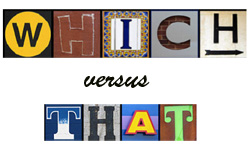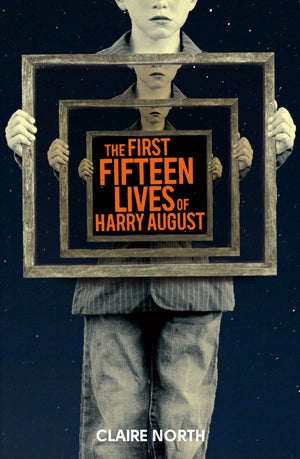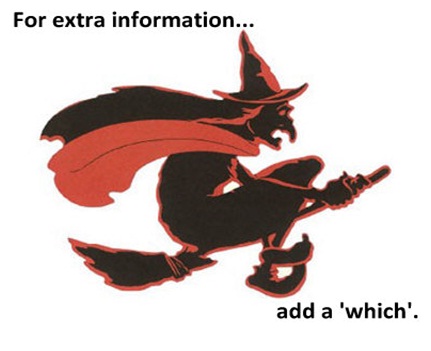Anyway ... it's late and I'm short on time tonight, so I'm going to quickly talk about two copyediting problems I spot all the time, not just in fiction, but on blogs and Facebook and, basically, everywhere. Both issues deal with when it's appropriate to set words or word phrases off by commas.
You think you know the answer? Let's see. I'm going to post some example sentences and you decide which ones are properly punctuated.
Example 1
A) My short story "The Case of the Missing Pot Roast" was published in 2018.
OR
B) My short story, "The Case of the Missing Pot Roast," was published in 2018.
Example 2
A) My newest short story "Alex's Choice" was published in Crime Travel.
OR
B) My newest short story, "Alex's Choice," was published in Crime Travel.
So what do you think? In each example, was (A) or (B) correctly punctuated? Based on a mistake I see often, I'll bet most of you (including you writers out there) said (B) for both. And I say to that ...
Buzz!
You lose that round. In Example 1, the correct answer is (A). But in Example 2, the correct answer is (B). Why? It all has to do with whether the story titles are necessary for the sentence to be clear.
 |
| A pot roast dinner because ... why not? |
You set a story title (or any information) off with commas when that information is not necessary for the sentence to be clear. So let's look at Example 1. If I wrote it without the story title it would say: My short story was published in 2018. That would probably leave you thinking, "Which story are you talking about? You've had a lot of stories published. You even had more than one published in 2018." And you would be right, which is why you need to know the story title for that sentence to be clear. Since the story title is required, you don't set it off with commas. So the correct punctuation for the sentence in Example 1 is: My short story "The Case of the Missing Pot Roast" was published in 2018.
Turning to Example 2, here's how it would read without the story title: My newest story was published in Crime Travel. Assuming again that you're familiar with my work, do you need the story title to know what story I'm talking about? Nope. I only have one newest story, so I don't need to say its name for you to know which story I'm talking about. Since the story title isn't necessary in that sentence, if I were to add it, the title should be set off with commas, as such: My newest story, "Alex's Choice," was published in Crime Travel.
Think you've got it? Let's try again.
Example 3:
It's 2006, and I call my sister and say, "My short story was nominated for an award." She would congratulate me and know exactly which story I'm talking about because at that time I only had one story published. As such, if I'd included the story title in the sentence, it would have been unnecessary detail, so it would have been set off by commas: My short story, "Murder at Sleuthfest," was nominated for an award.
But let's say I had two stories published in 2005. If I called my sister a few months later and said, "My short story was nominated for an award," she would ask, "Which one?" She can't tell which story I'm talking about because it could have been my first story published in 2005 or my second one. So I have to revise my sentence to make it clear: My short story "Murder at Sleuthfest" was nominated for an award. Since the story title is necessary for the sentence to be clear, it's not set off by commas.
 |
| Paul Rudd |
A) My husband Paul Rudd reads more than I do.
OR
B) My husband, Paul Rudd, reads more than I do.
If I had just one husband (and if I have to make one up, Paul Rudd is a good choice), his name would be set off by commas because you wouldn't need to know his name for this sentence to be clear. If I had simply said "My husband reads more than I do," you'd know I'm talking about Paul Rudd.
But what if I were a bigamist? Then if I said, "My husband reads more than I do," you would rightly say, "Which husband? Paul Rudd or Robert Downey Jr.?" (If I'm going to be a bigamist, I might as well do it right.) So for that sentence to be clear, I'd have to say: "My husband Paul Rudd reads more than I do." You'll notice there are no commas in that sentence because dear Paul's name was necessary for the sentence to be clear.
 |
| More Paul Rudd |
Example:
I've just gone shopping and come home with one new blouse. I put it on and show it to my husband, Paul Rudd. (Set off by a comma because I'm no bigamist!) And he says, "Your new top is pretty." And I smile, pleased that he liked my new top. There was no confusion in our conversation. He could have said, "Your new top, which is blue, is pretty." But he didn't have to mention the color because I only bought one new top, so I know which top he's referring to. Since the color wasn't necessary for the sentence to be clear, the information was set off by commas and the word "which" was used.
 |
| You can never have enough Paul Rudd |
Oh, wait, sorry, back to grammar. So you see, Paul's declaration that my new top was pretty was ambiguous because I hadn't bought just one top. So I calmly ask Paul which one he's referring to, and he says, "Sorry, I should have been clear. Your new top that's blue is pretty. The red one's ugly as sin." Since the color blue was necessary for me to know which blouse he liked, the information was not set off by commas and the word "that" was used.
And now I'm off to therapy since I can't even have a happy marriage with an imaginary husband.



